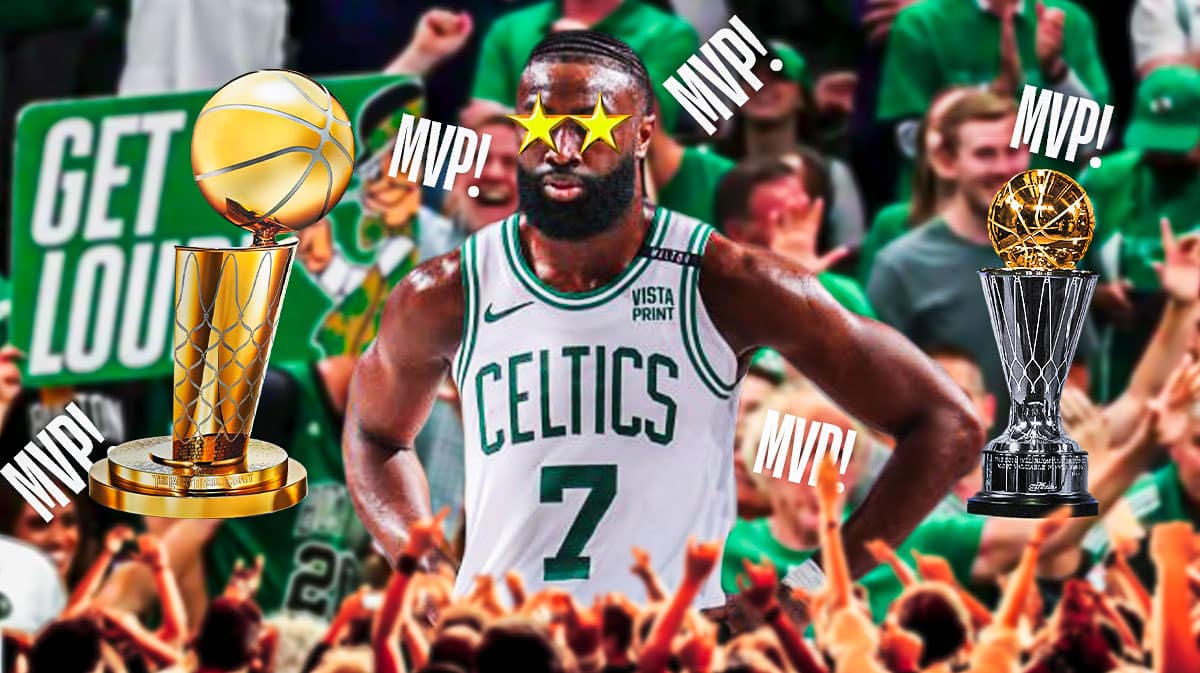Historical Performances of Finals MVPs

Throughout NBA history, the Finals MVP award has been bestowed upon some of the league’s most legendary players. These players have delivered exceptional performances on the grandest stage, leading their teams to championship glory.
The NBA Finals MVP is an award given to the most outstanding player in the NBA Finals. The award was first given in 1969, and has been awarded to some of the greatest players in NBA history, including Michael Jordan, Kareem Abdul-Jabbar, and LeBron James.
For more information on the NBA Finals MVP, please visit nba finals mvp.
Statistically, Finals MVPs have averaged impressive numbers across various key metrics. They have typically led their teams in scoring, rebounding, and assists, showcasing their all-around dominance.
The Finals MVP has been announced, and it’s a well-deserved win. But even the most talented players can’t control the weather. For the latest on the weather in Kalamazoo , click here. And remember, even when the weather isn’t perfect, the Finals MVP is still a champion.
Most Dominant Finals MVP Performances
- Michael Jordan (1991): Averaged 31.2 points, 11.4 rebounds, and 6.6 assists per game, leading the Chicago Bulls to their first NBA championship.
- Shaquille O’Neal (2000): Dominated with 38 points, 16.7 rebounds, and 2.7 blocks per game, powering the Los Angeles Lakers to their first title in 12 years.
- LeBron James (2012): Delivered an all-around masterpiece, averaging 28.6 points, 10.2 rebounds, and 7.4 assists per game, leading the Miami Heat to their second consecutive championship.
Impact of Finals MVPs
Finals MVPs have a significant impact on their team’s success. Their exceptional performances often elevate their teams to new heights, providing the leadership and inspiration needed to overcome adversity and secure the ultimate prize.
Finals MVP, the pinnacle of basketball achievement, is a testament to individual brilliance. Just as the iconic Celtics Championship Hat symbolizes triumph, the Finals MVP trophy represents the culmination of a season’s hard work and determination. It is a symbol of both individual and team success, a reminder that greatness is forged in the crucible of competition.
Factors Contributing to Finals MVP Selection

The selection of the NBA Finals Most Valuable Player (MVP) is a complex process that takes into account a variety of factors. While individual statistics are undoubtedly important, they are not the only factor that determines who wins the award. Team success, narrative, and even the player’s reputation can all play a role in the voting process.
In the early days of the NBA, the Finals MVP award was often given to the player who scored the most points or had the most rebounds. However, as the game evolved and teams became more sophisticated, the criteria for winning the award began to change. Today, voters are more likely to consider a player’s overall impact on the game, including his defense, playmaking, and leadership.
Individual Statistics
Individual statistics are still an important factor in the Finals MVP voting process, but they are not the only factor. Voters also consider a player’s efficiency, his ability to make big plays in关键时刻, and his overall impact on the game.
- Points per game
- Rebounds per game
- Assists per game
- Steals per game
- Blocks per game
- Field goal percentage
- Three-point percentage
- Free throw percentage
- Player efficiency rating (PER)
- True shooting percentage (TS%)
Team Success
Team success is another important factor in the Finals MVP voting process. Voters are more likely to give the award to a player who led his team to victory, especially if he did so in a dominant fashion.
- Wins
- Losses
- Point differential
- Net rating
- Playoff seed
Narrative
Narrative can also play a role in the Finals MVP voting process. Voters are more likely to give the award to a player who has a compelling story, such as a player who overcame adversity to lead his team to victory.
- Overcoming injuries
- Playing through pain
- Leading a team of underdogs to victory
- Redemption stories
- Legacy
Evolution of the Criteria
The criteria for winning the Finals MVP award have evolved over time. In the early days of the NBA, the award was often given to the player who scored the most points. However, as the game evolved and teams became more sophisticated, the criteria for winning the award began to change. Today, voters are more likely to consider a player’s overall impact on the game, including his defense, playmaking, and leadership.
The evolution of the criteria for winning the Finals MVP award is a reflection of the changing nature of the game of basketball. As the game has become more complex and team-oriented, the criteria for winning the MVP award have also become more complex.
Impact of Finals MVP on Player Legacy

Winning the Finals MVP award holds immense significance in shaping a player’s legacy within the NBA. It serves as a testament to their exceptional performance on the grandest stage, solidifying their status among the league’s elite.
The Finals MVP award recognizes the player who has demonstrated the most outstanding contributions to their team’s championship victory. It is a highly coveted accolade that elevates a player’s stature in NBA history. Players who have captured this prestigious award have etched their names into the annals of basketball legend, forever remembered for their pivotal roles in their team’s ultimate triumph.
Examples of Players Impacted by Finals MVP
Michael Jordan, widely considered the greatest basketball player of all time, cemented his legacy with six Finals MVP awards. His iconic performances in the NBA Finals, leading the Chicago Bulls to six championships, solidified his dominance and established him as a basketball icon.
Another prime example is LeBron James, who has won four Finals MVP awards. His remarkable leadership and all-around brilliance have propelled his teams to multiple championships, elevating his status as one of the most influential players in NBA history.
Drawbacks and Limitations
While the Finals MVP award is a valuable indicator of a player’s impact in the NBA Finals, it is essential to recognize its limitations. The award is inherently subjective, relying on the judgment of a panel of voters. Moreover, it is awarded based solely on performance in the Finals series, which may not fully reflect a player’s overall contributions throughout the season.
Despite these limitations, the Finals MVP award remains a highly respected and prestigious honor that holds significant weight in assessing a player’s legacy. It serves as a tangible recognition of their exceptional abilities and their pivotal role in their team’s championship success.
Finals MVP, the most coveted title in basketball, has been awarded to some of the greatest players in the game’s history. While the spotlight shines brightest on these individuals, it’s important to remember the impact of the team around them.
Just as the devastating tornado allegan left an unforgettable mark on its path, the contributions of supporting players can shape the destiny of a championship team, paving the way for the Finals MVP to shine.
The Finals MVP has been an elusive title this season, with several players stepping up at different times. As the Mavericks and Celtics battle it out in Game 5, the spotlight will once again be on the players who can make a difference.
Luka Doncic and Jayson Tatum have been the frontrunners for the award, but players like Jaylen Brown and Spencer Dinwiddie have also shown their worth. With the series tied at 2-2, every game becomes crucial, and the Finals MVP race is sure to heat up as the intensity builds.